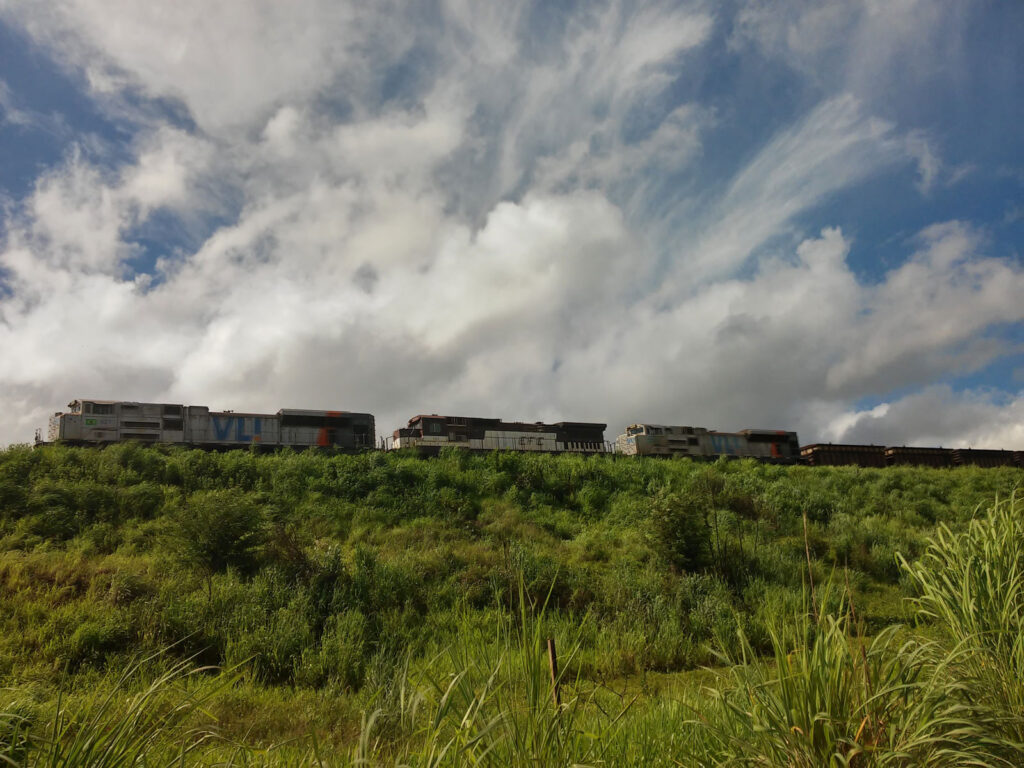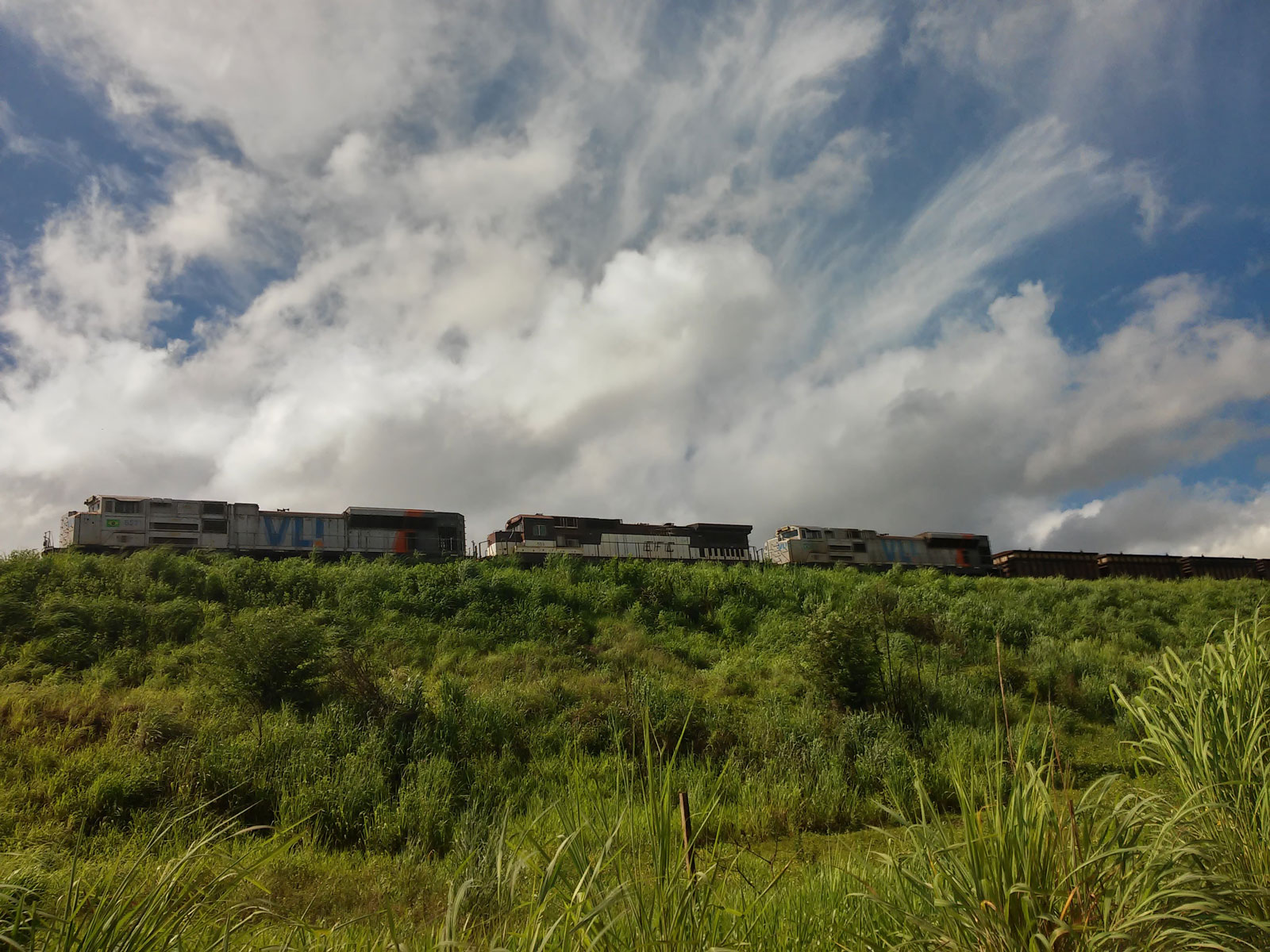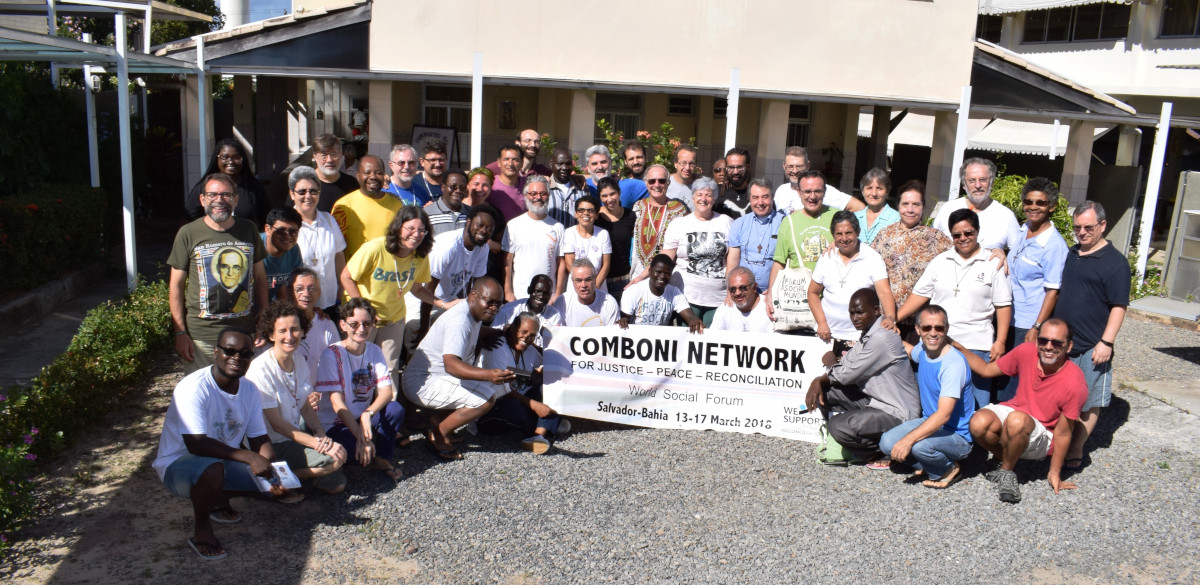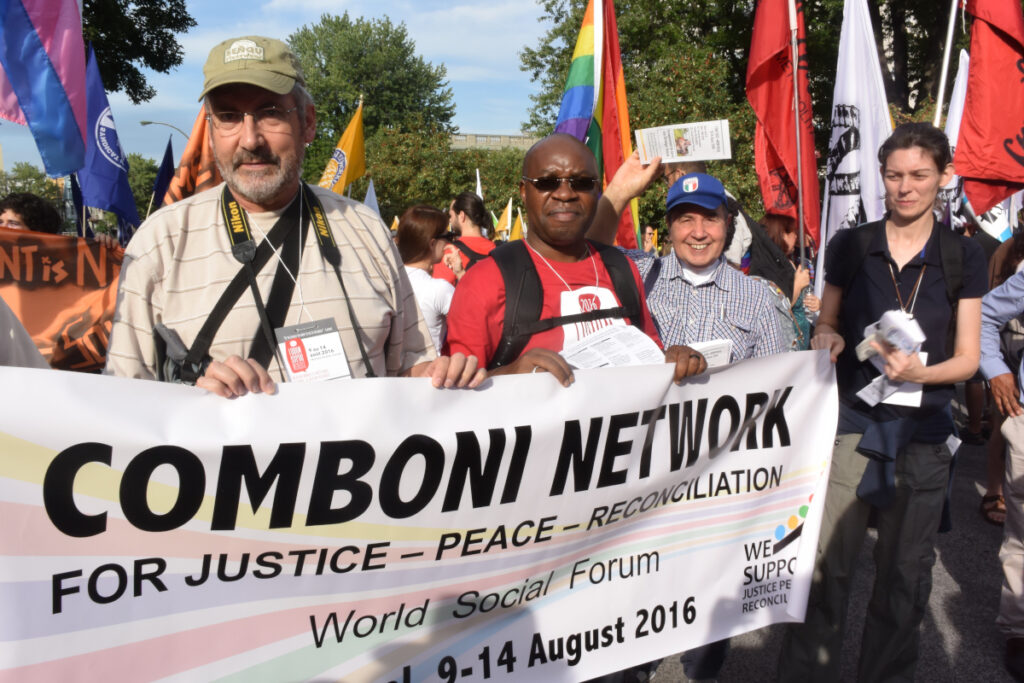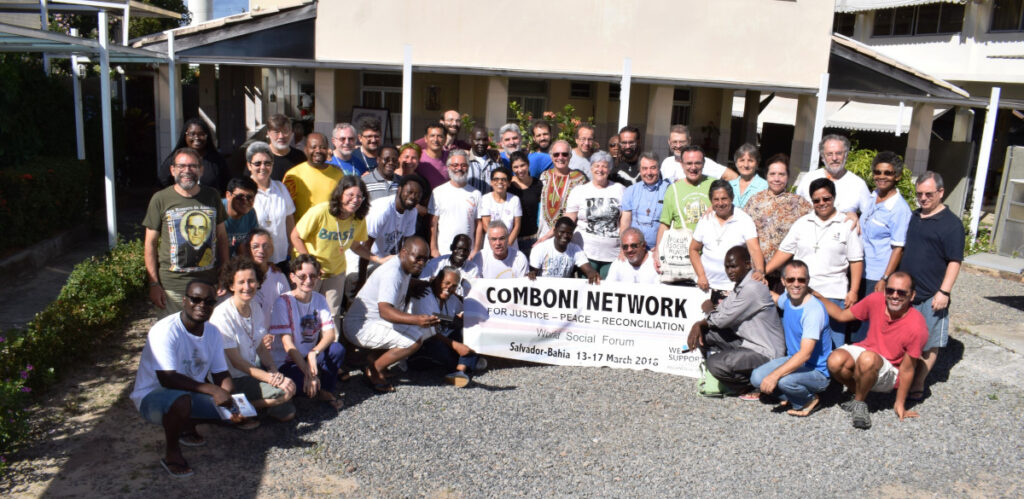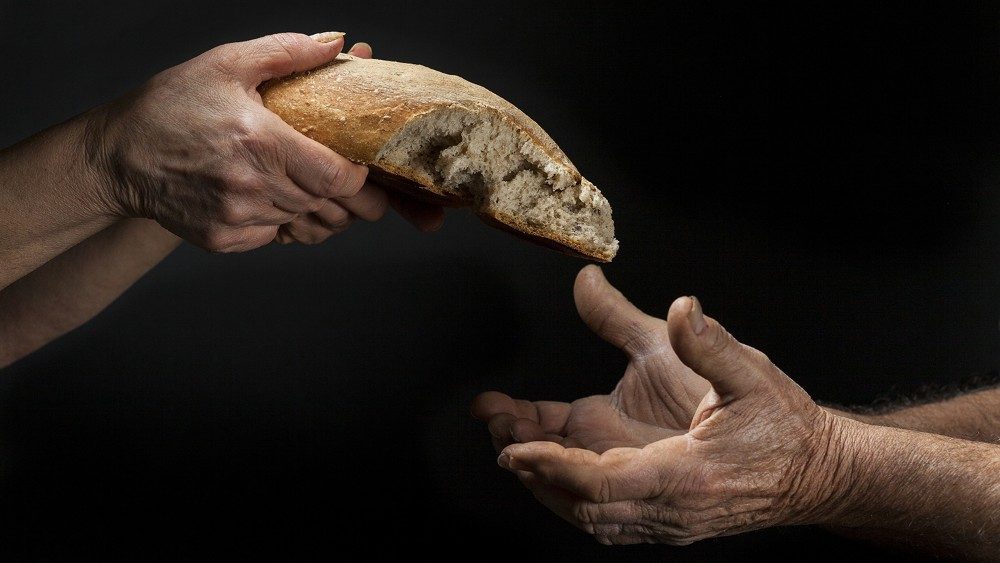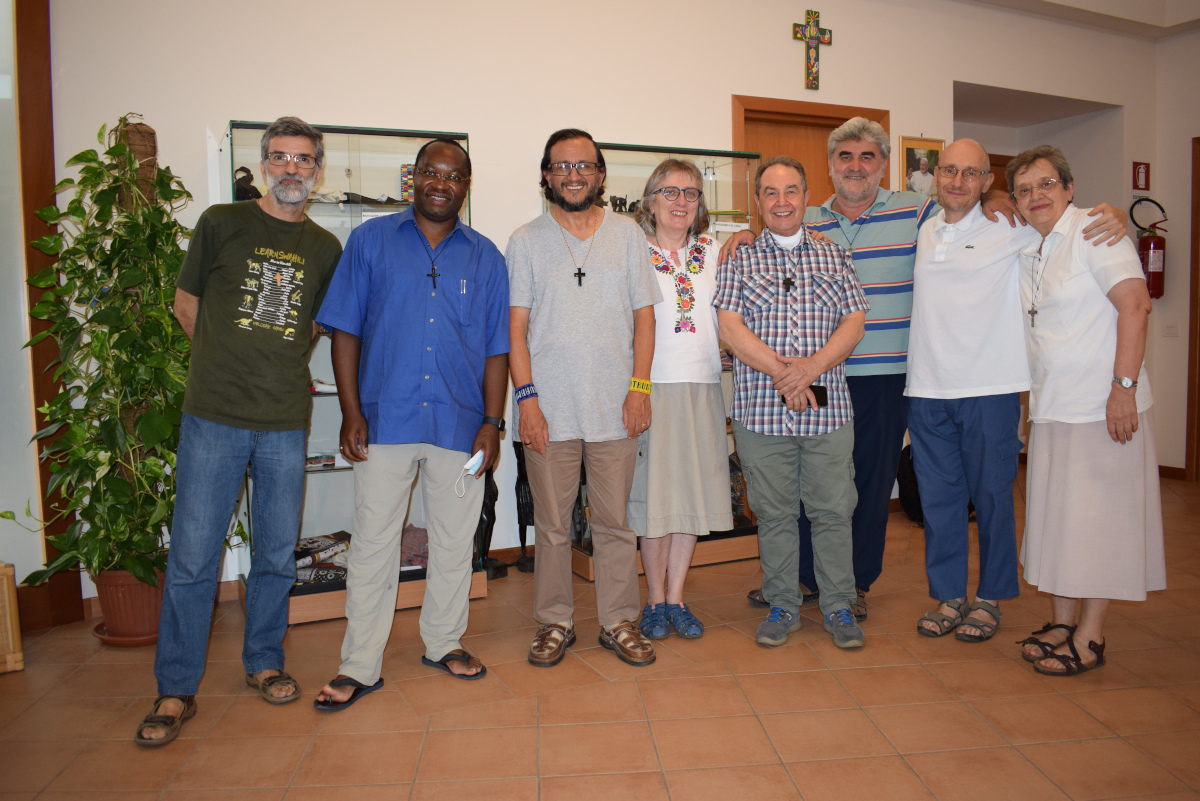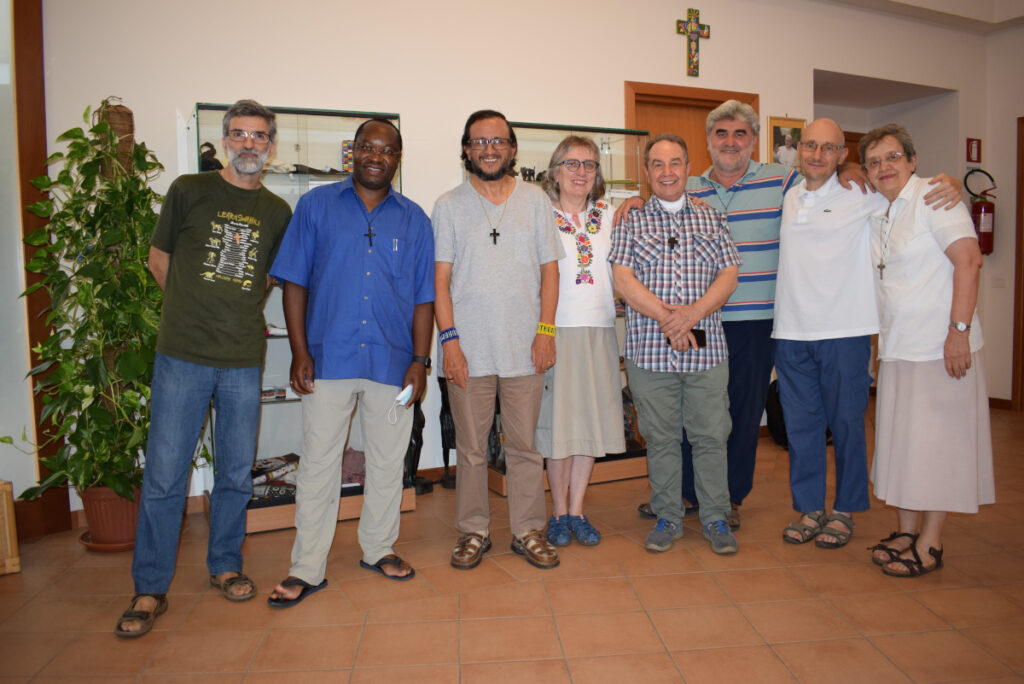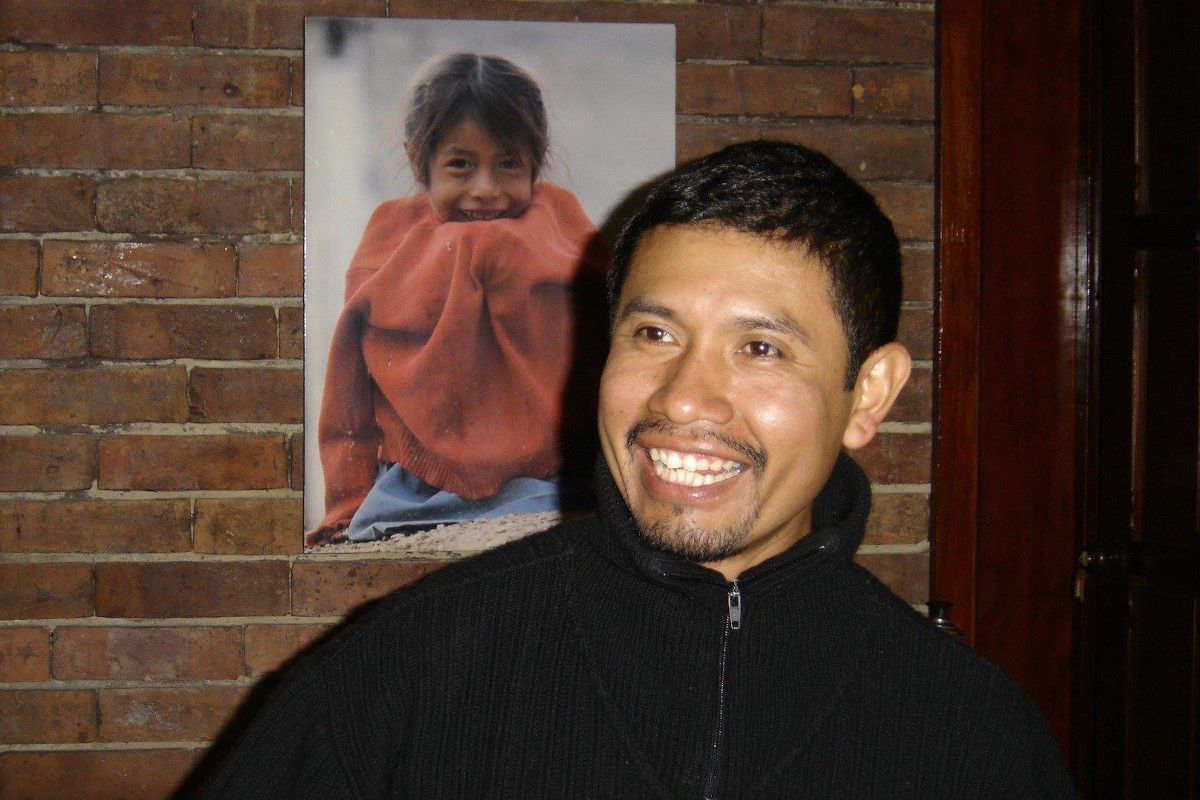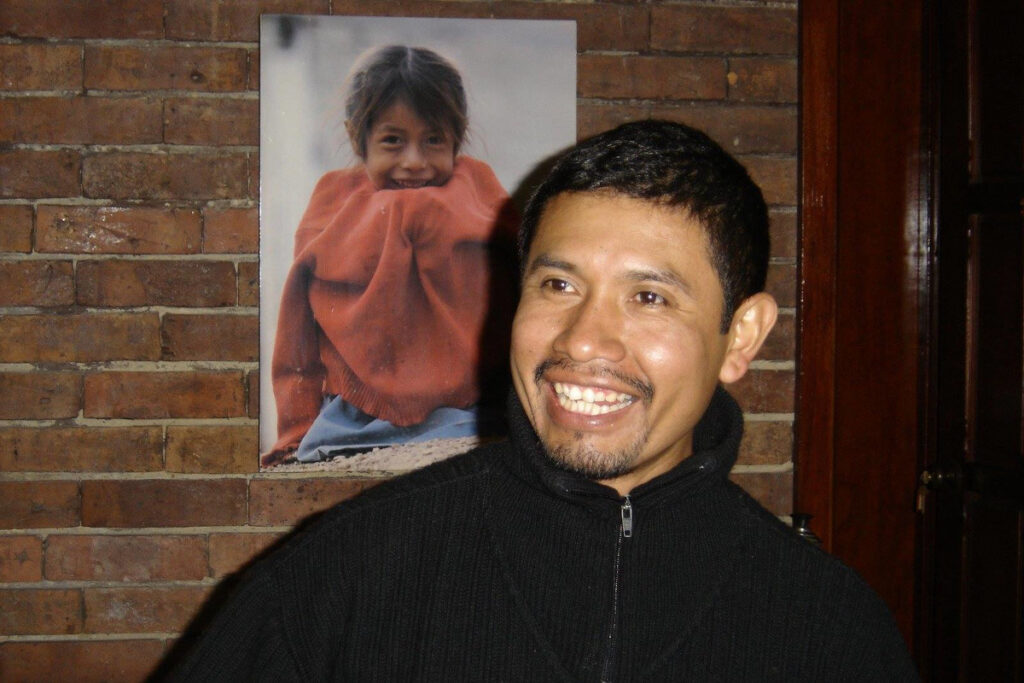INCARNATION OF THE WORD, BROTHERHOOD
AND HUMAN PROMOTION
Below we present the experience of Brother Joel Cruz Reyes in Ecuador in which we highlight features of the ministry of the Brother from a new perspective of human promotion that has The Word as its foundation.
1. Encounter with the mission
In 1997 I arrived in Ecuador, assigned to the Afro-Ecuadorian Cultural Centre in the city of Guayaquil. At that time, the accompaniment of people of African descent revolved around religiosity and liturgical-sacramental and socio-political formation, with the aim of making them socially and ecclesially visible. For this purpose, the support of lay experts in psychology, anthropology, sociology, politics, etc. was sought.
From the behavior, attitudes and motivations I saw in the Afros who came to the Center, I realized that their dependence on the missionary was chronic. They had become accustomed to considering themselves materially, spiritually and morally destitute. Certainly, this behavior was a reflection of the shadows of their history that reached them in the present, but it was also a consequence of the paternalistic vision that had prevailed in their accompaniment. This did not allow them to grow in humanity and in spirit; it stagnated them in the role of “object,” not allowing them to advance toward the role of the ecclesial and social “subject.
2. Understanding and initiating processes
Little by little, I understood that these processes, although they were very good, were disconnected from faith and from The Word, as if the “regeneration of being Afro” was only a “human-social” problem. I realized that the processes did not reach the contemplation of the Afro-descendant as a child of God, made in the Hisimage and likeness, sculpted by history, adverse social and ecclesial circumstances. But in the end the human is conceived and desired by God with a specific mission in the Church, in society and in the world.
The results were logical because, on the one hand, the pyramidal accompaniment inherited by the predominant pastoral tradition of the Church made them “object-dependent” on the action of the “subject” who was the missionary. On the other hand, the intervention of lay specialists without a religious vision, of faith and disconnected from the Word of God, could not offer more than a way to see the African descendant and his history, as a personal and social “problem”. They did not see themselves as “human beings” but as a “social problem” an “object” of abuse, mistreatment and exclusion. They were convinced that they were only “victims” and not human beings with an ecclesial and social responsibility.
3. Presence that shares life
When I began to accompany with them, I realized that the presence of the Brother who, by his vocational nature, is stripped of the sacred, is gradually “rounding off” the relational pyramid in the cultural, social and ecclesial structures, until the circularity of the ministerial fraternity willed by Jesus is consolidated. I came to understand that the Brother, precisely because he is a religious, is able to contemplate the humanity of the people he accompanies and to set that humanity in motion (human promotion) in the Church and in society.
I understood that the Brother is a bridge between science and faith, between the Gospel and society, between the Church and the world, between religious and secular life, between priestly and lay ministry. Without his presence, processes often become “extreme”: they go to the “liturgical-sacramental extreme” or to the “political-social extreme. The Brother, who has a foot in both extremes, is therefore able to balance the processes of evangelization and to make the human being see his history not as a human tragedy without God, but as a sacred history of salvation, where God is not only present but becomes flesh and assumes the causes of that human being as his own.
4. The miracles of brotherhood
The Lord gave me the opportunity to see the miracles of brotherhood that spring from the awareness of knowing that we are all brothers and sisters, children of the same Father. With the same dignity and missionary responsibility as Christ, and therefore, to understand ourselves as the Black Body of Christ in that discriminatory and exclusive society that also overshadowed the Church in that context. It gave me the opportunity to experience the liberating power of “becoming one among them”, of not being afraid to “lower oneself”, just like Jesus (Philip 2, Emmaus) and to seek together with them the ways, the answers, the solutions…
By being among people of African descent as a “companion on the journey” and not as a guide or teacher, made people begin to taste and savour communion and participation, to understand the value and power of the “cenacle of apostles” dreamt of by St. Daniel Comboni. Our of these, several initiatives were born: the Brotherhood of Afro-Ecuadorian Missionaries, the Afro-Biblical Way, processes of ethno-education and cultural recreation in an urban context, Afro organizations and associations with cultural and socio-political purposes, the Afro youth ministry…
My fraternal journey with the Afros allowed me to contemplate how “the object” was transformed into a social and ecclesial “subject. And it all began when they discovered themselves as human beings, children of God, missionaries of the Father. And this awareness is sown by living with them, discussing with them, as Jesus did with his disciples: on the road, in the houses, at the feast, in their villages… talking, responding to concerns, explaining, unhurried sharing, without fixed places… often far from the temple.
Having experienced the regenerating power of brotherhood in the human being, I thought and imagined the Comboni Missionary Brother as a “midwife” of lay ministries that go beyond the structures of the temple and religious matters. A ministry that touches human and social issues; as a companion of those ministries that are born with a secular projection in order to infuse them with the Spirit and to be the transforming force of God in society.
My journey with the people made me recognize myself as a religious brother, that is, an “expert” in establishing the profound connection between the world and God, between the flesh and the spirit, between the human and the divine. The Brother is an expert at helping human beings to understand God by being a citizen who acts in the society in which he finds himself and sees God in them.
5. Questioning and looking to the future
But how can we ensure that the fraternity that promotes the humanity of the people is strengthened and does not end up being diluted in the evangelizing tradition that looks more to the liturgical-sacramental? How can we make the ministry of the incarnation of the Word in ministries that touch on human and social issues more visible and meaningful in the Institute, the Church and society? These questions found an answer in the proposal made by St. Daniel Comboni to establish Training Centres where the African does not change and the missionary does not die.
This seemed to me to be the most adequate strategy for the numerical and dispersed situation of the Brother in the Institute and, thus, to be able to think of a physical figure that accompanies the ministry of the Brother, identifies him, defines him and makes him more comprehensible. For this reason, just as the priest is accompanied by the figure of the parish, a work that explains and makes his ministry understandable, so I began to imagine a work that could release all the ministerial force of fraternity in the Institute. Thus was born the idea of the Obras Combonianas de Promoción Humana (OCPHs) and the Centro Cultural Afroecuatoriano de Guayaquil became the first of these works.
FOR PERSONAL AND COMMUNITY REFLECTION:
1. What strikes me most about this religious experience? Why?
2. What does this experience touch in me? For what reason?
3. What does it say to us as a community?
4. What part or parts of this experience can illuminate parish work or missionary projects in our communities/missions?
TO DEEPEN
Guidelines of Pope Francis and Benedict XVI on fraternity
Reflections taken from the document “Notes for a missionary spirituality on Fraternity” by Br. Alberto Degan.
In this third millennium the Pope proposes a fascinating mission: to combat the “globalization of indifference” by building the “globalization of fraternity”. Naturally, it is a call for all Christians, but in us Brothers this call undoubtedly arouses a sense of joy and particular responsibility.
– The first two messages for the World Day of Peace of Pope Francis (the messages of 2014 and 2015) are entirely dedicated to the theme of fraternity. “Fraternity is the foundation and the way to peace,” Pope Francis tells us. In fact, peace and justice are not just a ‘technical’ question of making structural changes to diminish the scandalous inequalities that characterize today’s world, nor is it just a political question. Peace and justice are, above all, a spiritual challenge: only if we feel we are brothers and sisters, children of the same Father, will people be ready to make the changes and the ‘sacrifices’ necessary to give life to a just and fraternal society. As Francis said in the Urbi et Orbi message for Christmas 2018, “without the brotherhood that Jesus Christ has given us, our efforts for a more just world would not go very far” (Psalm 84, 11-12).
– Pope Benedict proposed fraternity as an economic principle: “Economic, social and political development needs, if it is to be authentically human, to make room for the principle of gratuity as an expression of fraternity,” he stated in his encyclical “Caritas in Veritate” n. 34. And he added: “The great challenge we have… is to show… that in commercial relations the principle of gratuity and the logic of gift, as expressions of fraternity, can and must have room in ordinary economic activity” (CV 36). Benedict XVI proposes that the logic of fraternity should reconfigure our economic system.
– More recently, Pope Francis dedicated the entire message for the 2014 World Day of Peace to the theme of fraternity: “Fraternity, foundation and path to peace. The titles of the various parts of this document are: “You are all brothers, (Mt 23,8)”, “Fraternity, a premise for overcoming poverty”, “The rediscovery of fraternity in the economy”, “Fraternity extinguishes war”, “Fraternity generates social peace”, “Fraternity helps to protect and cultivate nature”. Only by taking a quick look at these titles do we come to understand that, for Pope Francis, fraternity – far from being a random and ‘romantic’ concept – is a very concrete principle of faith with inescapable social, political and economic implications. According to the Pope, social justice cannot be built if we do not first cultivate in our hearts a deep sense of fraternity.
– The first part of this Document is entitled “Where is your brother? (Gen 4:9). In the Bible, this is the second question that God addresses to man, and that means that for God it is a fundamental question. Human beings, just as they were conceived by our Creator, realize their humanity when they come out of their selfishness and concern themselves with the living conditions of their brothers and sisters, when they enter into a logic of communion and brotherhood that makes them perceive that their life has meaning only if it is lived in an attitude of solidarity with their fellow human beings. In other words, for God, to be human means to be and to see ourselves as brothers and sisters.
– Jesus presents himself to us as the “first-born among many brothers” (Rom 8:29): fraternity is the path mapped out by God for the realization of our humanity. As an African proverb says, “I am a human being because you are a human being,” in other words: ‘I feel good and can realize my humanity when I see that my brothers are also good and can realize it. But in our society the opposite logic prevails, that of the old Latin adage “Mors tua vita mea”, which means: “Your death is my life”, “Only if I kill you and take possession of your goods can I live happily”.
So it is not surprising that Helmut Maucher – president of the multinational Nestlé in the 1980s and 1990s – even said that he needed executives with a “killer instinct”. In this way, as the economist Hinkelammert states, “the fight to kill the other is seen as a source of prosperity and life”. Thus, the evangeliser proposes the model and spirituality of the brother-man against the model and ‘spirituality’ of the killer-man.
A “spiritual revolution” is needed to fight injustice and poverty, a spirituality of brotherhood that makes us understand that the defeat and death of my brother will also be, sooner or later, my defeat and death. As Martin Luther King said, “Either we will succeed in living as brothers or we will die.
– In Evangelii Gaudium (n.186) Francis states that our love for “the most abandoned of society” derives “from our faith in Christ who is always close to the poor”. Undoubtedly, in the face of so many enormous challenges, we often feel small and powerless: we have no immediate answers for WHAT TO DO. But Jesus gives us a very clear indication of WHERE TO BE: today, as yesterday, Jesus “is always close to the poor” calls us to be NEAR THE POOR, NEAR THE LAST.
Our General Chapter of 2015 accepted this invitation of the Pope, and for this reason itindicated as the first criterion for re-qualifying our commitments the criterion of “closeness to the poor” (CA15 n.44.5). This is a criterion that for us Comboni Brothers has a special value, because our Founder saw us as those who are closest to the people, because we spend more time with them: “In Central Africa, the well-prepared artisan brothers contribute to our apostolate more than the priests do to conversion, because the black students and the neophytes (the majority of whom are in the process of being converted) are the most important ones. … have to stay a fairly long time with the ‘masters’ and ‘experts’, who by word and example are true apostles for their students) are with the brothers, and they observe and listen to them more than they can observe and listen to the priests” (W5831).
Note: See also the last encyclical of Pope Francis “Fratelli Tutti” on fraternity and social friendship (October 3, 2020).
PERSONAL PRAYER
“And the Word was made flesh, and dwelt among us, and we beheld his glory (the glory that corresponds to the only begotten of the Father), full of grace and truth.” Jn 1,14
Reflections from the continental meetings of Brothers in America:
– The ministerial figure of the Comboni Missionary Brother is inserted in the midst of an ecclesial mentality and tradition that imprisons the Word of God in temples; in theoretical discourses that hardly dare to go beyond ecclesial structures that touch human and social issues,
– His vocation is to “make the Word flesh” in the context where he lives and also to shape the human being as a child of God and brother of all. This leads him to open up paths and initiatives that are not limited to the structures and traditions of the Church, because the “missionary incarnation of the Word” is lived in harmony with the times and the places where it is found.
– The fraternal spirit of God leads him to the insertion in the daily life of the people, therefore he is able to discover and rescue the richness and experience of individuals and human groups that he accompanies in mission. He aims at enriching the Church and society and promoting the truly human aspect of the people as a work and revelation of God that must be known, recognized, valued, assumed and proposed by the Church to the world.
– Living fraternally together with the people (consciously and with a missionary spirit) makes him a “radar” that captures the signs, the signals, the noises, the challenges… that the human and social reality poses today and here. For this reason, his word and contribution is decisive in the dynamism, creativity and updating of the Comboni mission.
– His evangelical-social and fraternal face makes him a “bridge” between society and the Church, between the secular and the religious, between the laity and the clergy. It is precisely for this reason that it becomes the social face of the missionary commitment of the Church. This vocational dimension inserts him into the core of human sensitivity that seeks solidarity, justice, peace, and a commitment to transforming society. Its vocation makes it a presence that strengthens the conscience and spirit of the human being to live the Kingdom as justice, peace, joy (Rm 14, 17ff)
– The role of the Brother as a consecrated person and minister of Christ, then, is the edification and human and Christian growth of persons and communities, from the perspective of the Gospel, and therefore his action does not exclude the ministry of the Word. His evangelizing presence among the people emphasizes the dimension of brotherhood in all its aspects: integral development of persons, promotion of justice, peace, human rights… that is, his ministry directly touches social, anthropological, and cultural questions from the perspective of the Kingdom of God.
SHARING IN COMMUNITY AND LINES OF ACTION
- In an atmosphere of prayer and mutual listening, let us share in community the fruits of personal prayer.
- Let us reflect together:
- What do you think about what we have shared and prayed about the ministry of the Brother?
- What do you feel the Spirit is inviting us to do, personally, as a community, as a province, and as an Institute?
- How can we respond in a concrete way to the invitations of the Spirit?
- Our commitment is:
“The ministry of the Brothers, disciples of the fraternal Christ, pays attention to the dimension of fraternity in all its aspects, including the integral development of persons, the promotion of justice, peace and human rights. It is, therefore, a ministry open predominantly to the social, anthropological and cultural dimension of the Kingdom of God, oriented to social transformation, to the witness and proclamation of brotherhood and to the animation of the Christian community”.
SUGGESTIONS FOR THE CELEBRATION OF THE EUCHARIST
At the moment of the OUR FATHER, keep a prolonged moment of silence to think of the fraternity that is born of God.
